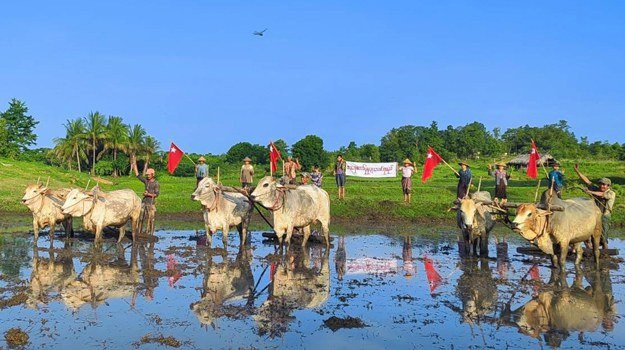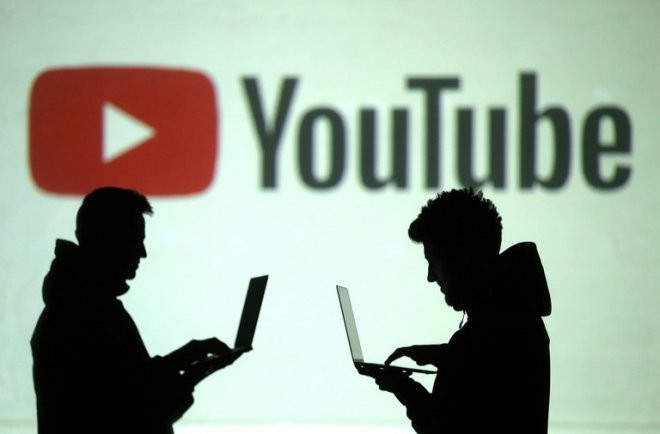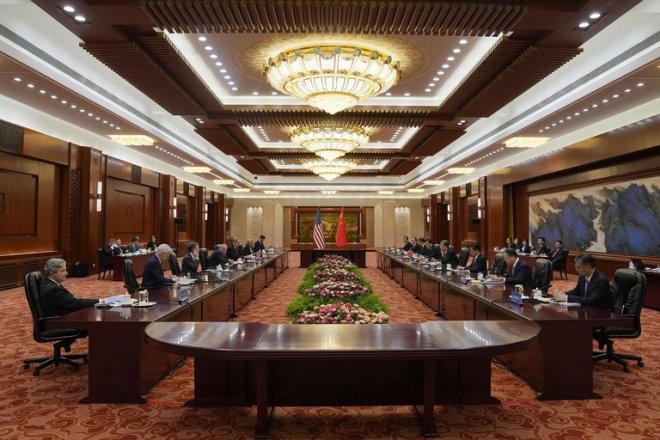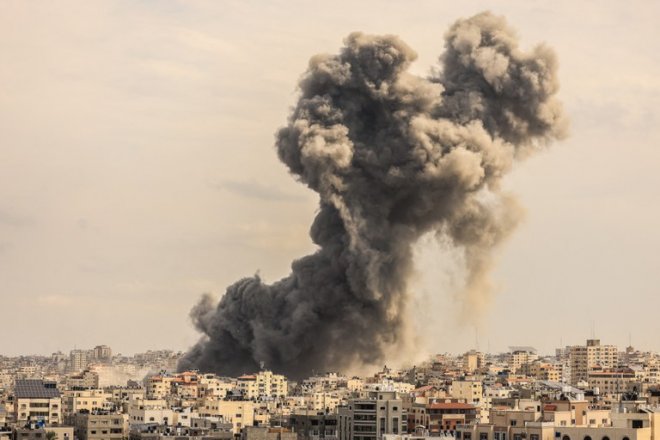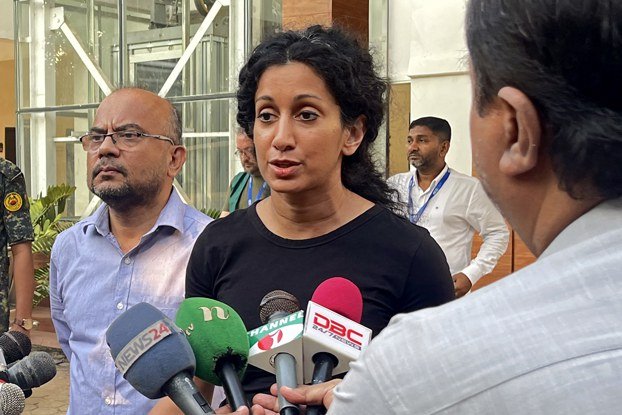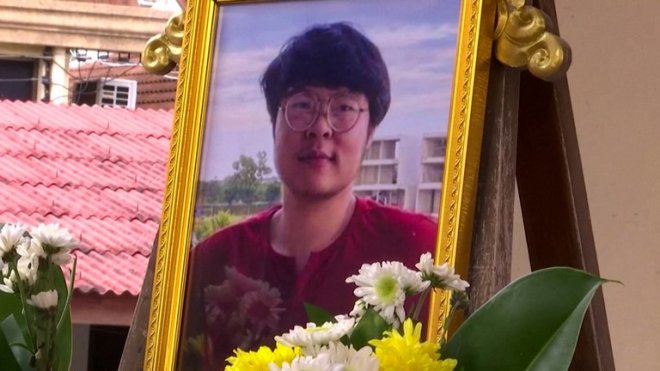China falls down press freedom index as Asian Communist states dominate bottom ranks
China fell four places on a global press freedom index released on Wednesday, joining fellow Asian Communist nations North Korea and Vietnam at the bottom of a Paris-based media freedom watchdog’s annual scorecard, published on World Press Freedom Day.Reporters Without Borders described China as "the world’s biggest jailer of journalists and one of the biggest exporters of propaganda content." The People"s Republic of China fell to 179th place on the index, just one place above bottom-of-the-class North Korea.
“Independent journalists and bloggers who dare to report ‘sensitive’ information are often placed under surveillance, harassed, detained, and, in some cases, tortured,” said the group, which uses its French acronym RSF.
The report noted that the Asia-Pacific “continues to have some of the world’s worst regimes for journalists.” But press conditions around the world are deteriorating, including in the United States, which dropped three places to 45th amid legal challenges and widespread threats of violence.
"The last three places are occupied [by] Vietnam (178th), which has almost completed its hunt of independent reporters and commentators; China (down 4 at 179th) ... and, to no great surprise, North Korea (180th)," RSF said.
In Vietnam – like China, a one-party state that adapted its media governance model from the Soviet Union – “traditional media are closely controlled by the single party” and “independent reporters and bloggers are often jailed,” RSF said.
“The many topics subject to censorship include political dissidents, cases of corruption involving senior officials, the single party’s legitimacy, relations with China and, of course, human rights issues,” the report said, calling Vietnam the world’s third largest jailer of journalists, with 40 now behind bars.
Strongmen in Cambodia, Myanmar
North Korea, a near perennial bottom dweller in the index, is “a totalitarian regime that bases its power on surveillance, repression, censorship and propaganda,” said RSF.
“North Koreans can still be sent to a concentration camp for looking at an online media outlet based outside the country,” it said.
RSF said the strongmen rulers of Cambodia, which slid five places to 147th, and Myanmar, which edged up three slots to 173rd, played a key role in their countries’ low rankings with attacks on their critics.
“The democratic transition that started at the end of the 1980s allowed the emergence of a press that flourished until the long-serving Prime Minister Hun Sen launched a ruthless war against independent journalism before the 2018 elections,” the report said of Cambodia.
“Radio stations and newspapers were silenced, newsrooms purged, journalists prosecuted – leaving the independent media sector devastated,” said RSF, adding that Hun Sen has used similar tactics ahead of elections this year.
The Myanmar military junta formed by Senior Gen. Ming Aung Hlaing after coup d’état on Feb. 1, 2021, “obliterated the fragile progress towards greater press freedom that had been seen since the previous military junta disbanded in 2011,” the watchdog group said.
The junta “tolerates no alternative to its narrative” and has revived prior censorship policies toward local media, while “Min Aung Hlaing openly promotes a policy of terror towards journalists who do not toe the junta’s line,” said RSF.
Quitting journalism in China
The index was released as journalists in China told Radio Free Asia that many in the business are now changing careers, at least in part because of all-encompassing controls on media reporting by the propaganda arm of the ruling Chinese Communist Party.
"My former classmates in journalism school and all of my colleagues from when I was a reporter [have changed jobs]," Fudan University journalism school graduate Zhang Jia said.
"One reason is that you don"t make enough, as the media has gone into decline," Zhang said. "Another is that there is no longer any freedom of the press.
"Journalists tend to go and work in corporate public relations, or marketing departments, or live streaming," Zhang said.
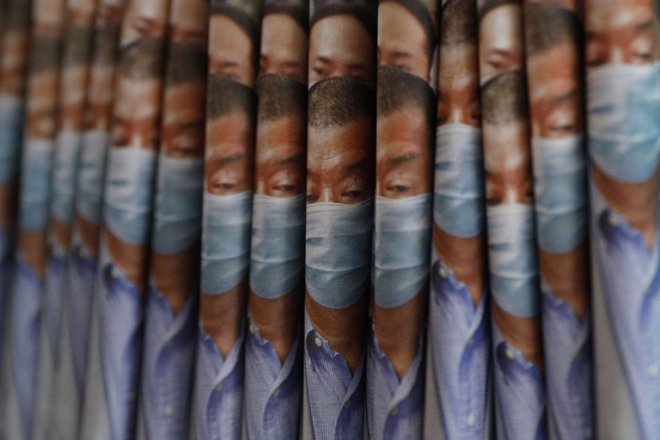 Copies of the Apple Daily newspaper, featuring Hong Kong media tycoon Jimmy Lai, are displayed at a newsstand in Hong Kong, Aug. 11, 2020. Credit: Kin Cheung/AP
Copies of the Apple Daily newspaper, featuring Hong Kong media tycoon Jimmy Lai, are displayed at a newsstand in Hong Kong, Aug. 11, 2020. Credit: Kin Cheung/AP A former journalist from the southwestern province of Guizhou, who asked to be identified only by his surname Zhao, said there was far more scope for Chinese journalists to make a difference during the relatively politically liberal 1980s.
A former journalist from the southwestern province of Guizhou, who asked to be identified only by his surname Zhao, said there was far more scope for Chinese journalists to make a difference during the relatively politically liberal 1980s."I was a journalist in the 1980s," Zhao said. "When I first started working in news, I felt that I was still allowed to say stuff, that I was still in the game” despite existing censorship at the time.
Zhao said the media environment went rapidly downhill in the political crackdown that followed the 1989 Tiananmen massacre that ended weeks of student-led mass protests in and around Tiananmen Square and in other Chinese cities.
"Two general secretaries later, it"s all gone," he said in a reference to former leaders Jiang Zemin and Hu Jintao, who practiced a less comprehensive form of censorship than the current leadership under Xi Jinping.
Hong Kong press freedom ‘extinguished’
Xi, in power since 2012, “has restored a media culture worthy of the Maoist era, in which freely accessing information has become a crime and to provide information an even greater crime,” the RSF report said.
“China’s state and privately owned media are under the Communist Party’s ever-tighter control, while the administration creates more and more obstacles for foreign reporters,” it added.
State media made no visible mention of World Press Freedom Day, which comes as Wuhan citizen journalist Fang Bin was released from a three-year jail term for reporting on the emerging COVID-19 pandemic in 2020.
Fellow citizen journalist Zhang Zhan, also sentenced for reporting on pandemic-struck Wuhan, is still serving a four-year jail term in Shanghai.
The campaign group Hong Kong Media Overseas called on the international community to pay attention to the ongoing criminalization of independent journalism in the once-freewheeling city under a draconian national security law imposed by Beijing in 2020.
"Once home to one of the freest media centers in Asia, Hong Kong has joined the dismal roll call of places where press freedom has largely been extinguished," the group said in a statement.
It said 28 journalists have been arrested and charged with offenses, some carrying heavy penalties, since the crackdown began in the wake of the 2019 protest movement.
Hong Kong journalists are frequently subjected to "physical intimidation ... by unidentified persons, which contributes to the atmosphere of fear surrounding the practice of journalism," said Hong Kong Media Overseas.
Translated by Luisetta Mudie. Additional editing by Paul Eckert and Jim Snyder.
[圖擷取自網路,如有疑問請私訊]
|
本篇 |
不想錯過? 請追蹤FB專頁! |
| 喜歡這篇嗎?快分享吧! |
相關文章
AsianNewsCast








